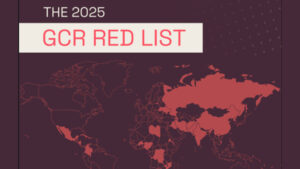
NASHVILLE (BP) — Women and girls kidnapped and raped by Boko Haram jihadists are often rejected and ostracized in refugee camps and upon return to their communities and families, a new report released by UNICEF and International Alert reveals.
Hundreds of an estimated 2,000 residents kidnapped in northeast Nigeria since 2012 have been freed as military forces have retaken land captured by Boko Haram, the study said. Returning to their communities and families, often with children born of rape in captivity and forced marriages, the women face unique discrimination, the report found.
“As they return, many face marginalization, discrimination and rejection by family and community members due to social and cultural norms related to sexual violence,” according to the report’s executive summary. “There is also growing fear that some of these girls and women were radicalized in captivity. The children who have been born of sexual violence are at an even greater risk of rejection, abandonment and violence.”
While the exact number of those kidnapped is not certain, still missing are more than 200 schoolgirls kidnapped in 2014 in Chibok and the subject of the #BringBackOurGirls campaign.
The Feb. 16 report “Bad Blood: Perceptions of children born of conflict-related sexual violence and women and girls associated with Boko Haram in northeast Nigeria,” was conducted through 19 focus group discussions and key interviews at four camps for internally displaced persons (IDPs) in the Maiduguri Metropolitan Council, Borno state’s capital. The camps are among 17 officially registered camps in the capital, each with populations ranging from 3,000 to 18,000, and together comprising 95 percent of IDPs from Boko Haram violence. Those interviewed included religious leaders, survivors, male and female community leaders, government representatives and service providers.
While all victims of sexual violence during the Boko Haram conflict are stigmatized, those perceived to have lived in Boko Haram strongholds, or to have been Boko Haram brides either by force or personal will, face more intense persecution upon their release, interviews revealed. Communities fear the women may have been radicalized to perpetuate Boko Haram violence, and that their children fathered by the jihadists will naturally become jihadists themselves.
“Many perceive these victims of conflict as being partly responsible for the violence and losses suffered by entire communities during the insurgency,” report authors wrote. “As a result, children and newborns as well as their mothers are being increasingly ostracized and are at risk of further violence.”
Faith-based groups can help mitigate the risk of violence to freed victims through local and international education campaigns on the vulnerabilities and risks the victims face, by partnering with local groups who can advocate for the women in their communities, giving the victims platforms to share their stories, and providing medical care and legal assistance.
Despite Nigerian President Muhammadu Buhari’s proclamation at the end of 2015 of a “technical defeat” of Boko Haram, the jihadists have continued to attack villages and markets in northeast Nigeria and Cameroon in particular, sometimes killing more than 100 at a time through suicide bombings, firebombs and shootings.
Among Boko Haram’s latest attacks, 58 people were killed in twin bombings in mid-February at a small, informal IDP camp about 55 miles outside Maiduguri, Bloomberg News reported today (Feb. 17). In late January, Boko Haram killed more than 100 people in firebombs, shootings and suicide bombings in northeast Nigeria, the most deadly attacks near the IDP camps in Maiduguri. Charred and bullet-ridden corpses littered the streets, survivors and soldiers told the AP.
Boko Haram, which has claimed allegiance to the Islamic State of Iraq and Syria (ISIS), has exceeded ISIS as the deadliest terrorist group in the world, according to the 2015 Global Terrorism Index. The GTI attributed more than 6,644 deaths to Boko Haram in 2014, with most attacks occurring in northeastern Nigeria. ISIS killed 6,073 in terrorist attacks in the same year, according to the report.
Boko Haram originally targeted Christians but has also killed moderate Muslims, government officials and civilians, killing as many as 20,000 people and displacing 2.6 million others since 2009, according to estimates.
In 2014 alone, 42 percent of all attacks by Boko Haram and Fulani herdsmen in Nigeria were on Christian communities, while 35.4 percent targeted random civilians, according to the Jubilee Campaign 2015 Report on Nigeria. Other attacks in 2014 targeted Muslim communities (6.8 percent), the government (10.9 percent), schools (4.1 percent) and media and medical personnel (0.5 percent), the Jubilee Campaign reported.












